![]()
Mon, Aug 29, 2011 | Turkey Analyst, vol. 4 no. 16 | By M. K. Kaya
Will the CHP, Turkey’s Main Opposition Party, Ever Become a Relevant Political Alternative?
This article was first published in the Turkey Analyst (www.turkeyanalyst.org), a biweekly publication of the Central Asia-Caucasus Institute & Silk Road Studies Program Joint Center. © Central Asia-Caucasus Institute & Silk Road Studies Program Joint Center, 2011.
The Republican People’s Party (CHP), Turkey’s main opposition party, will have to adopt a whole new discourse and appropriate a new political mission if it is going to be a force that has any political relevance. The CHP can choose one of two paths: It can either change, becoming a party that is in tune with the political aspirations of a vibrant society for which old dogmas hold little appeal. Or it will resist change, refusing to heed where society is headed; in that case, it will share the fate of the Russian Communist Party. It will be an embittered force of opposition to the evolution of modern Turkish society, a party that has nothing to offer but its history. It is more probable that the CHP will follow down the second, desolate path.
Background
The CHP had pinned high hopes on the June 12, 2011 general elections. Yet the result was a big disappointment; although the CHP in fact did much better than it has done in decades, receiving twenty-six percent of the votes, that still fell short of what it had expected to attain, a result around thirty percent. The CHP had tried to present a new image for the electorate, after having elected Kemal Kılıçdaroğlu as party chairman in 2010, and fielding several new names as candidates. Yet the renewal of faces was not accompanied by any fresh political discourse that could have appealed to a broader electorate. Neither has the leadership of CHP and the cadres of the party in the aftermath of the election applied themselves to any reassessment of the political mission and program of the party; instead, the disappointing election result has occasioned a re-ignition of the internecine fighting which has long been one of the trademarks of Turkey’s main opposition party. It seems very unlikely that the CHP will be able to answer to the demands and live up to the expectations of those sections of Turkish society that did mobilize under its banners before the June 12 general election.
In fact, although the CHP failed to reach out to a broader electorate, it has nonetheless become the assembly point of a very broad coalition of the discontented: the unstoppable ascendancy of the ruling Justice and Development Party (AKP), its resilience in the face of all the attempts – legal and illegal – to remove it from power has bred a feeling of desperation in different quarters, in the media, in the business community, in academia and in the political world. The question is not so much if there exists a will, among those circles, to redesign the CHP so that it can become a real contender for power, but whether or not the party will be able to effectuate the internal and ideological transformation that allows it to accommodate that broad coalition. In order to fulfill the role that those outside forces have assigned it, the CHP will have to adopt a whole new discourse and appropriate a new political mission. Indeed, statements made by the party leader Kılıçdaroğlu and by the representatives of the new coalition that has assembled around him does indicate that the need to live up to the demands for a redesigned CHP are well recognized.
However, the political legacy of Deniz Baykal, the former leader of the CHP, represents a serious obstacle to Kılıçdaroğlu’s attempts to go from rhetoric to real political change. Baykal had managed to permanent a twenty percent support for the CHP simply by positioning the party as the guardian of the old political regime. In that situation, the CHP only needed to be viscerally opposed to the AKP; it did not need to present any real political alternative to the AKP to mobilize those for whom the governing party represents an existential threat, only play to their fears, by intimating that Sharia rule was around the corner. The challenge for Kılıçdaroğlu is to retain the support of that main base, while at the same time succeeding in opening up the party for new segments of society. If Kılıçdaroğlu remains true to Baykal’s heritage he will fail to attract new voters; if on the other hand he disawovs that inheritance he will run the risk of alienating the party’s core.
Implications
So far, Kılıçdaroğlu has sought to escape this paradox by adopting what in effect amounts to an apolitical discourse; the leader of the “new” CHP has privileged paying attention to social and socio-economical issues, talking mostly about poverty and unemployment. Yet although that may make certain sense in the short run – since avoiding truly crucial political issues means avoiding upsetting the internal balance of the CHP – it is nonetheless unlikely to pay off politically in the long run. That is in fact an anachronistic discourse that evokes the political agenda of pre-1980 Turkey. Indeed, it was that discourse that brought the CHP, under its populist leader Bülent Ecevit, to power in the 1970s. However, Turkey is no longer the Turkey of the 1970s. Its economy is booming, its population is no longer poverty-stricken; the substantial improvements in health care, education and infrastructure during the last decade make Kılıçdaroğlu’s leftist rhetoric seem dated; it is hopelessly ineffectual as a weapon against the AKP.
It is its economic performance that is the main reason for the AKP’s enduring grip on power; but the AKP owes its ascendancy also to being the embodiment of societal aspirations for change. Turkey’s economic development since the 1980s have resulted in large sections of society being empowered; and as they have become more prosperous, the citizens have come to question the restrictions that the state had imposed on them. That is why Turkey’s politics since the 1990s have come to be defined by issues of identity, be they ethnic or religious.
For the “new CHP” to be able to become a relevant alternative to the AKP, Kılıçdaroğlu will have to address those defining issues in a way that breaks with the party line of former leader Baykal. He cannot afford to remain mute on matters such as the Kurdish issue, or the question of the presence of religion in the public realm. What sets the new CHP apart from the old one ought not to be Kılıçdaroğlu’s apolitical focus on poverty but a new approach to the political issues that really matter. However, it is apparent that Kılıçdaroğlu is yet far removed from taking such a bold step. The leader of the new CHP incongruously continues to hold the view that the Kurdish issue would be solved by economic measures, and he is yet to offer a vision of democratization that corresponds to the societal yearnings for greater freedom.
The challenge that the CHP faces is that it needs to become something altogether different than it is: it not only needs to discard its statist ideological legacy and acquire a new mission, freedom. It needs to become a political force in the true sense of the word. Until recently, the CHP was but the electoral vehicle of the regime of state tutelage – the mouthpiece of the state elite, the military, bureaucracy and judiciary. Now, the generals end up in prison and the bureaucracy and the judiciary are increasingly staffed with AKP loyalists. The CHP is orphaned and utterly disoriented; it may not be realistic at all to expect that it can reinvent itself.
Conclusions
The CHP can choose one of two paths: It can either change, becoming a party that is in tune with the political aspirations of a vibrant society for which old dogmas hold little appeal. Or it will resist change, refusing to heed where society is headed; in that case, it will share the fate of the Russian Communist Party. It will be an embittered force of opposition to the evolution of modern Turkish society, a party that has nothing to offer but its history. And that is a history that glows less gloriously for ever more people in Turkey.
It is more probable that the CHP will follow down the second, desolate path; yet the possibility of it reinventing itself should not be dismissed out of hand. It all depends on whether the party that once was the vehicle of Turkey’s modernization recognizes the futility of opposing the march of history.
If the CHP is to avoid becoming the Turkish version of the Russian Communist Party, its well-intentioned leader needs to summon the audacity to be blunt, telling cadres and supporters that the time of the CHP’s one party rule, when the Kurds were bombed to submission and expressions of Muslim piety were banished from the public realm is long since bygone, and that they need to come to terms with Turkey as it is today.
“Reason and science” were the lighthouses of the modernization project that the CHP cherishes; but the core base of the CHP tends to be visceral rather than reasonable and rational in its reactions to the changes that Turkey has been undergoing. And that is what makes any ideological reinvention of the party so difficult a task.
M. K. Kaya is a contributing editor to the Turkey Analyst.



 RSS
RSS

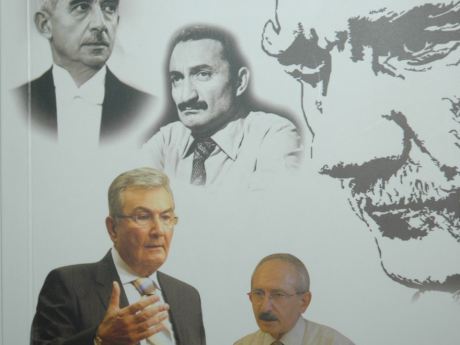

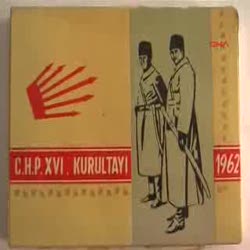
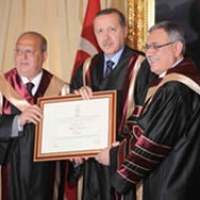
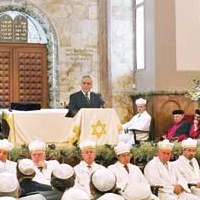
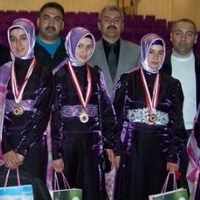
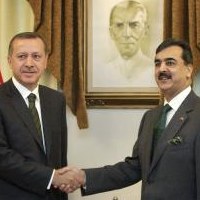
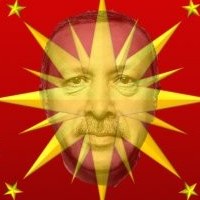




Will the CHP, Turkey’s Main Opposition Party, Ever Become a Relevant Political Alternative? | Middle http://t.co/Z9hgPx0
Will the CHP, Turkey’s Main Opposition Party, Ever Become a Relevant Political Alternative? | Middle http://t.co/Z9hgPx0